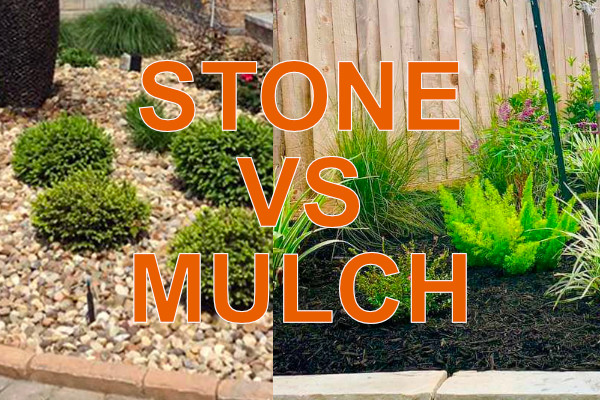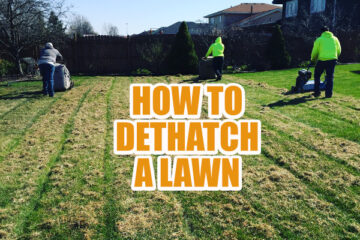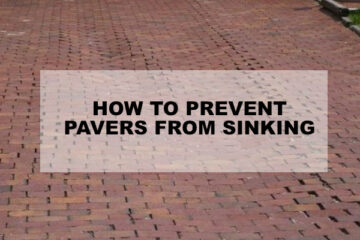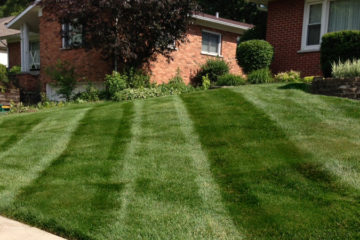When designing your garden beds and landscaped areas, a common question is what type of material to use around plants, shrubs, and flowers. This article will explore the two most common options – decorative stone (rock) and mulch.
The Basic Differences Between Rocks and Mulch
Mulch, like wood chips, pine needles, and sawdust, is an organic material that needs to be laid down every year since it disintegrates over time. Rocks don’t break down and can be laid down in your garden bed once and then just added to once in a while as maintenance.
Mulch provides a much better environment for the health of your flowers and plants, while rocks don’t provide much at all.
Rocks (Decorative Stone)
Rocks, also known as decorative stones in the landscaping industry, come in different types, colors, and price options. The number one benefit of rocks as a landscaping choice is that they don’t need to be replaced.
Installing rocks is a one-time cost, and because of that, it makes rocks a less expensive choice than organic mulch. Rocks are also fantastic weed-blockers. In areas where wildfires are an issue, rocks are a much better choice over organic mulch, which will burn right up. In areas where high winds are an issue, rocks will stay exactly where they are and prevent soil erosion.
Unlike organic mulch, rocks provide no nutritional benefit to the garden or the soil. When it is hot out, rocks hold onto heat and can raise the temperature of the soil. This causes thirsty and stressed-out plants. In addition, rocks can throw off the pH of your soil since they are alkaline and trees like acidic soil.
Pros of using rocks:
- Installing stones cost less than mulch in the long run
- Rocks prevent weeds better than mulch
- Rocks prevent erosion
- Rocks will stay in place better than mulch
- Rocks are a better option where wildfires are an issue
Cons of using rocks:
- Rocks provide no nutrition to flowers and plants
- Rocks can raise the temperature of the soil
- Ph levels of your soil get affected by rocks
- Rocks do not keep moisture as good as mulch
Mulch
Mulch is a 2- to 4-inch layer of wood material applied on top of the soil in flower beds and landscaping areas. Mulch allows trees and plants to grow faster. Mulch also reduces the need for watering since the organic material holds more water than rocks do.
Additionally, as the mulch breaks down over time, it adds nutrients back into the soil. Rocks cannot do this. As the seasons change, mulch gives the plants the protection they need. In the summer, it cools the ground, and in the winter, it adds an extra layer of warmth around the plants.
Pros of using mulch:
- Mulch helps to retain soil moisture
- Mulch helps reduce plant watering
- It adds nutrients back into the soil
- Mulch helps regulate soil temperature
- Mulch helps to prevent weeds
Cons of using mulch
- Mulch needs to be replaced every 1 – 2 years
- Mulch can be more expensive because it needs to be replaced more often
- Mulch requires more maintenance than rocks
- Mulch is not as good as rocks at preventing weeds
Conclusion
When deciding what type of material to use for your garden landscape, consider your landscaping garden goals and how to best achieve them.




